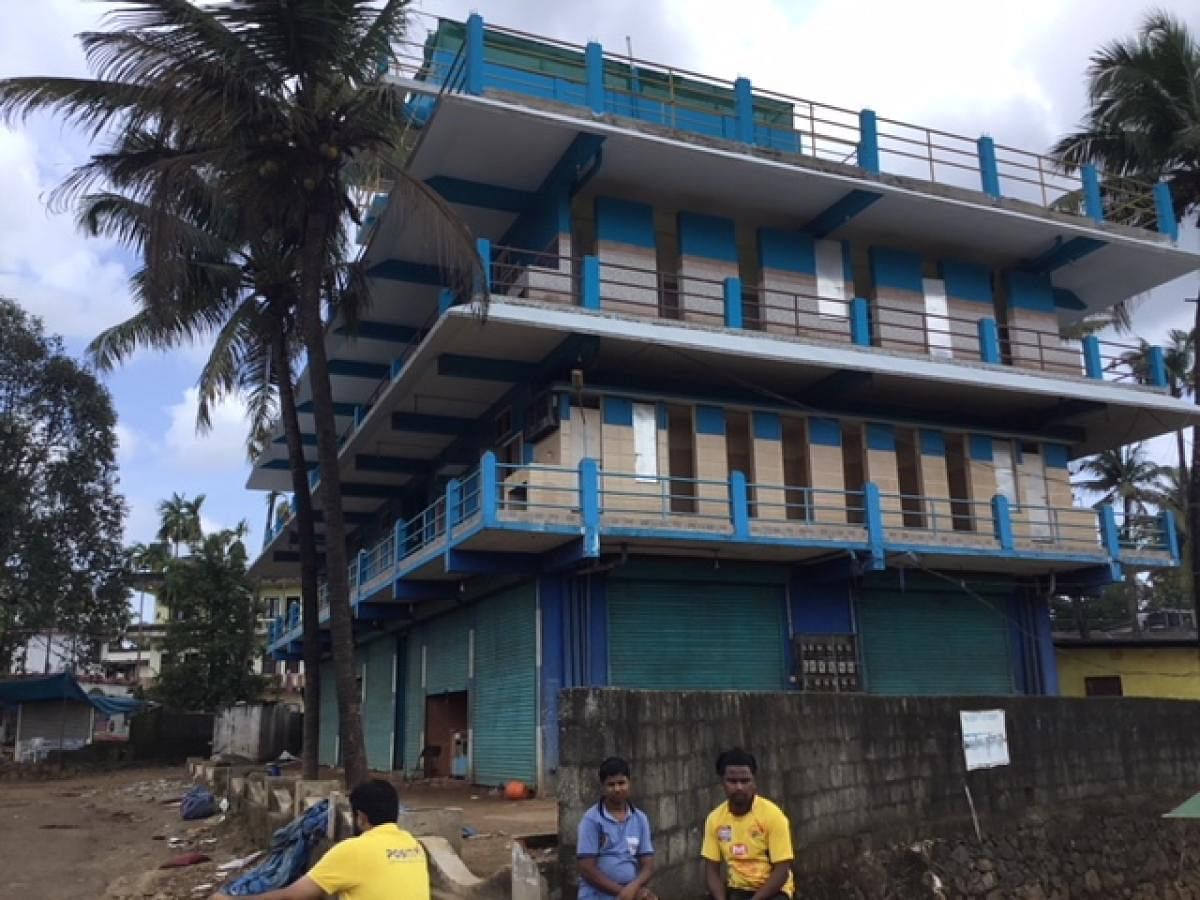
Bohanto Kolitha, originally from Assam, sits outside the ‘Bengali Camp’ in Kandanthara thinking about his bleak future.
Kolitha was working in a plywood manufacturing unit in this satellite town of Ernakulam (Cochin) for the past one year until his factory came under water.
“I don’t have any money left with me. My owner has told me that it might take a few more weeks for him to get his manufacturing unit up and running. Though my owner has promised me three-square meals a day, I won’t be getting paid till I start working in the plywood unit,” he told DH.
Idrich Ali, sitting next to Kolitha, has the same tale to narrate, the plywood unit he was working is also shut for now, but he would continue to be in Perumbavoor hoping against hope that the factories start running within a week.
While many migrant labourers returned to their homes in Assam, West Bengal, Odisha and other states, those like Kolitha and Ali have no option but to stay put since they can’t even pay for their train tickets. “I don’t have the money to go home and come back. Since my owner has promised me to feed me, I will stay here only,” Kolitha said.
“My brother Arman Ali also works in a plywood unit. Since he is unwell and needs medical care, he is going back to Assam. I have given all the money that I had to him. Only one can go at a time,” Ali said.
The situation that Kolitha, Ali and many of their friends find themselves in reflect the sufferings of the migrant population and their hand-to-mouth existence, after sending some money to their families back home.
Perumbavoor, whose economy is dependent on migrant labourers, has seen the exodus of migrants ever since the floods hit the city. The exodus was so heavy that Railways had to run as many as eight special trains to transport the migrants to their hometowns from Cochin in the past one week.
“We had to get in touch with the West Bengal government continuously to exert pressure on the Railways to run trains to ensure that these people reach home. The West Bengal government has set up a help desk at the Haldia railway station to facilitate migrant workers to go back to their native places,” Benoy Peter, Executive Director of Centre for Migration and Inclusive Development, said.
A few kilometres away, Sarthab and Dharul Islam, also from Assam, were busy scrubbing the wall to get it cleared off the dirt accumulated due to the gushing water that entered a bungalow.
“Since my plywood unit has been closed, I am into cleaning houses to eke out a living. Though I get paid Rs 600 per day for cleaning, there is no certainty that I will get a job tomorrow,” Sarthab told DH.
The duo, who were earning Rs 400 per day in their previous job, wait for plywood units to open so that the income is regularised.
Peter says migrant workers taking up such jobs don’t realise the risk that they are getting into. “They might get paid, but cleaning the debris is risky as they don’t know how to deal with such situation. Four to five snakes were caught in one house where debris was being cleaned,” Peter said.
Though owners planned for their labourers to stay after the floods hit, Peter says those facilities were not enough. “Many left because their livelihood was affected and since people in their source area panicked. Many were forced to leave because they know they can’t get a job for a few months,” he said, adding that the workforce would eventually come back to Kerala, which is heavily dependent on such people.
Azees Pandiyarpilly, General Secretary of Sawmill Owners and Plywood Manufacturers Association (SOPMA), said more than 50 units have completely been destroyed during the floods and another 50 units suffered huge losses. “We have not yet estimated the extent of losses, but we are sure the manufacturers have lost at least Rs 150 crores,” he said.